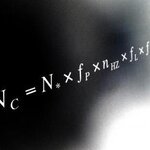
I must admit, before reading Massimo Pigliucci’s interesting article on Science 2.0, I was unaware of John Dupre’s so-called scholarship. My curiosity first led to Wikipedia which refers to him as a critic of evolutionary biology. With amazing tools such as Google and YouTube, I was able to watch Dupre debate Alex Rosenberg of Duke University, someone whom I had many exchanges with in his first philosophy of genomics class in 2004. After watching the video, in a matter of minutes it was apparent that Dupre is a philosopher, not an expert in evolution. A clearer picture of his…


